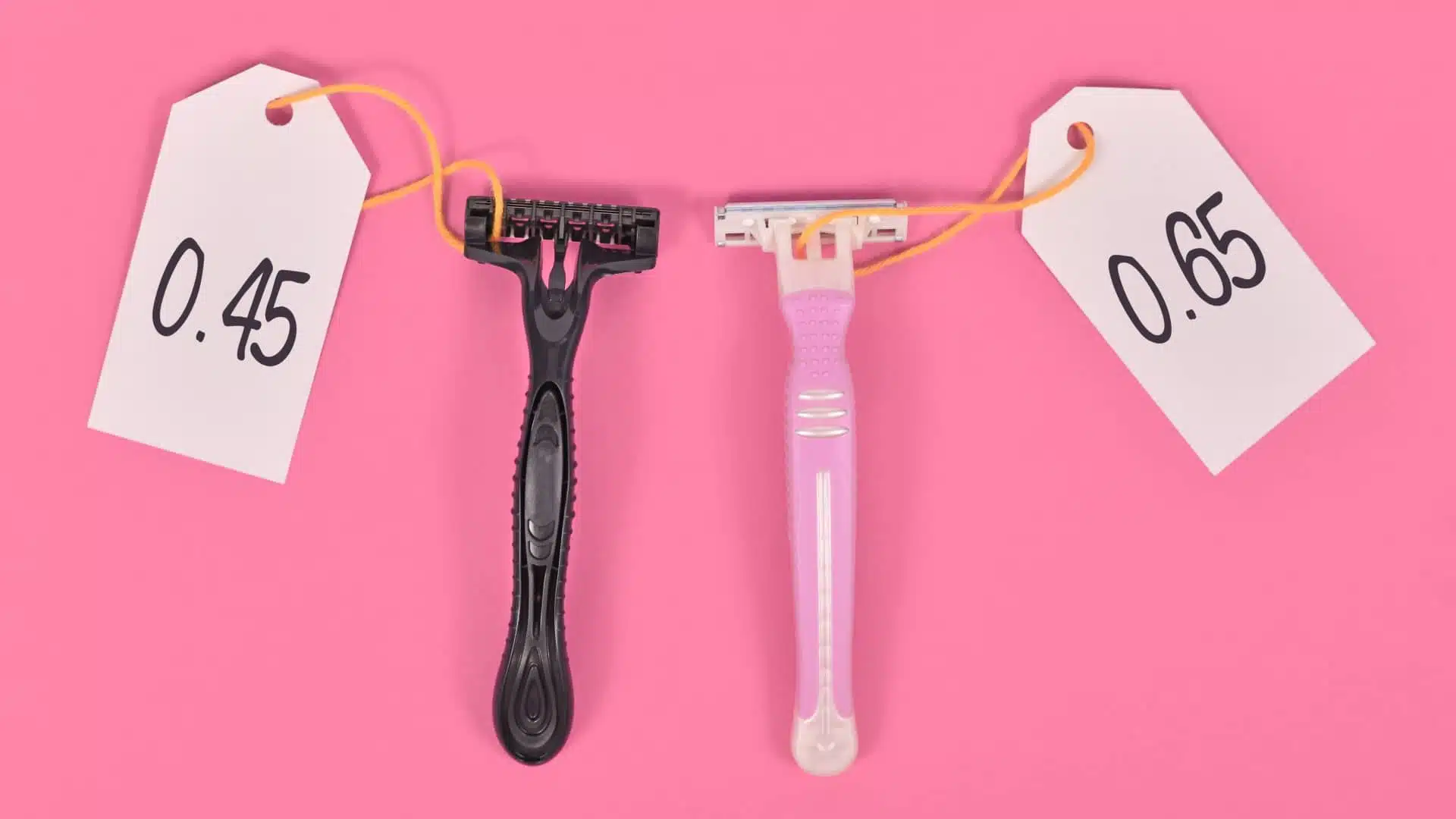Save big money with small changes.
While it’s true that you won’t get wealthy saving pennies, a tiny amount today can compound into a massive nest egg over time. These little things add up to huge savings, if you make saving money a habit.
Small Ways To Save Money That Add Up Over Time

Studio Romantic via Shutterstock.com.
I asked some of the greatest minds in personal finance to share the small ways they cut spending. These small ways to save money may not seem like much, but taken together (and for years on end!) they can lead to a nice boost in savings.
Discover the best ways little things add up to huge savings!
Make Your Own Coffee
Making coffee at home is such a well-known money hack that it spawned a sexist book claiming that women don’t get rich because they blow all their money on lattes.
Obviously, that’s not true, and foregoing your favorite coffee drink will not automatically make you rich. I also don’t advocate stripping your life of every little thing that brings you joy – so if your morning coffee drink is the one thing you look forward to every day, keep indulging it!
However, if it doesn’t bring you joy and you’re only stopping for coffee out of habit or because it’s easier, it’s time to break the habit. You can get a cheap French press for about $30 and brew your own delicious drink for less than a dollar a day.
With one Starbucks drink costing nearly $7 by itself, you can save $40 a week if stopping for coffee is a daily habit, but even if you just replace one drink a week with a homemade version, you can save $20 a month.
Brown Bag Your Lunch
Kevin from Just Start Investing saves a small fortune packing his lunch every day.
If you opt for chips and a sandwich, or veggies and hummus, you can get by on about $10 a week. With rising inflation in fast food prices, it’s nearly impossible to find a meal for less than ten bucks, meaning you can eat for the entire week for the price of one meal out.
When you pack your lunch, you can save $40-50 a week, depending on what you make.
Freeze Bread
Bread reigns supreme as a household staple. It’s a key ingredient in hot dogs, hamburgers, sandwiches, and French toast, but also makes an easy side for tons of meals.
Unfortunately, fresh bread goes bad fast. To make it last, pop it in the freezer.
I admit, I was skeptical at first. My mom used to freeze bread, and it turned slimy when she reheated it in the microwave.
Reheat it in the oven instead for delicious bread that almost seems fresh baked. It’s a small way to save money while reducing food waste.
Home Made Chicken Stock

Robyn at A Dime Saved saves money by making her own chicken stock.
She uses scraps and leftovers to make jars of stock, which she can freeze and use whenever needed. Her method saves money, reduces waste, and tastes better. As a bonus, it’s slightly healthier because she doesn’t need to include as many preservatives.
Run Water through Your Shampoo/Soap Bottles
Make hygiene products last with water. When you’re at the end, rinse the bottle with a little water and shake well. The water will loosen the last remaining morsels of your product, without limiting their effectiveness.
I use water to get the last few drops of shampoos, conditioners, hand soaps, dish soaps, and laundry detergent, giving myself an extra week or so of product, which helps me stretch my budget.
Avoid Travel Size
Do you stock up on the cute little travel-sized bottles before heading out on a trip? Travel and money expert Marjolein at Radical Fire says to stop.
Those travel kits are overpriced!
Instead, buy a few re-usable travel-sized bottles and fill them with your normal stock of shampoo, conditioner, and body wash before you go.
You only have to buy the bottles once, and you’ll find that the normal size is far cheaper than the travel size when compared ounce to ounce.
Use a “Keep the Change” Program
If your bank offers any type of keep the change program, you should enroll in it.
My bank rounds all debit card purchases up to the nearest dollar and puts the spare change into my savings account. I’ve saved thousands of dollars over the years with it.
If you use your debit card for most of your purchases, you will see how quickly these little things add up for yourself.
Save Your Spare Change

Backgroundy via Shutterstock.com.
If you prefer cash, save up your spare change. Put it all in a giant jar, and take it in every few years to see how much it’s worth.
When I went through my cash-only phase, I saved about $200 a year in loose change! You don’t realize how much those pennies and nickels add up until you take them in.
Roll Your Coins Instead of Using Coins Star
Turning in that spare change can cost you. Those fancy coin star machines, while convenient, take a hefty fee. Most machines take over 10%!
Although you can get a better deal if you take the gift card option, the best way to keep all your cash to yourself is to use a bank.
Many banks won’t take a jar of spare change, but it you take the time to roll your coins, they must accept it (if you have an account). As a bonus, you can deposit it directly into your savings account.
Pick Up Pennies
If you don’t have any spare change to save, you can always find some! How many times do you see pennies, nickels, and even dimes just chilling in the parking lot?
Those coins are legal tender.
The next time you see small change on the ground, pick it up and add it to your stash. These little things add up, and you’ll have a few bucks saved before you even know it!
Skip Instant Pay
Nowadays, we have a ton of app options for accessing and transferring money. Venmo, Cashapp, PayPal, and others allow us to instantly send our friends and family cash and conduct business transactions.
Some of these services charge you a fee regardless (I’m looking at you PayPal!) but some of them are free if you don’t mind waiting a few days for your money.
Cashapp charges a three-dollar instant access fee, but “normal” transfers which take a couple of days are free.
If you don’t mind waiting a few days, you can save money by using the free option.
Reduce Your Usage
If you need to save a few bucks each month, examine your internet and cell phone plans to see if you can cut back.
Many companies offer different tiered plans, and you may be paying for far more data than you need. Examine your usage and see if you can cut back to save a little money each month.
Use Your Bank’s ATM

Ground Picture via Shutterstock.com.
Speaking of fees to use your own money – ATMs are notorious for charging fees. The ATM charges you a three-dollar fee for the pleasure of using it, and your bank charges you a fee for daring to use an ATM they don’t own.
To avoid these charges, you can simply use your own bank’s ATM and access your money for free.
Unfortunately, that’s often easier said than done. My bank’s closest ATM is over an hour away, which is why I switched back to using my debit card for most of my purchases.
Know Yourself
Jesse from The Best Interest Blog saves money by knowing his weaknesses. Impulse buys can be a huge budget buster, so examine your spending and see what types of things you tend to buy on impulse.
If you can avoid them, you can save a lot of money.
My biggest budget buster remains junk food. I can spend $20 a pop on chips and cookies. To prevent spending money on junk food, I make a grocery list and stick to it, and eat before I shop.
What can you do to avoid your biggest budget weaknesses?
Switch to Turkey
Ground turkey is cheaper, healthier, and better for the environment than ground beef. It tastes the same (or better!) in nearly everything from burgers to tacos to chili.
Make the switch and save a few bucks with every grocery store trip.
Buy the Men’s Version

The pink tax is real. Products marketed towards women often cost more than their “unisex” or “male” counterparts, even though they’re exactly the same.
Buy men’s razors and avoid the cutesy “pink” version of regular products. They’re the same, and you’ll pay less.
Energy Efficiency
Being smart about your electrical bill is a great way to save small amounts of money. Sanjana at The Female Professional saves money by running her major appliances at off-peak times. Running the dishwasher at night rather than during the day reduces the costs, which can save you a lot of money over time.
For even more savings, opt for energy-efficient appliances and cold-water cycles.
Unplug
All of your appliances use a tiny bit of energy all the time. Conserve it by unplugging. Keep your phone charger, toaster, coffee machine, television, and computer monitors unplugged when you aren’t using them.
There are lots of other ways to save small amounts of money on energy, and although it’s hard to quantify it, if you use all the tips, you’ll see lower utility bills over time.
Examine Your Subscriptions
John at Financial Freedom Countdown saves money by examining his recurring subscriptions at least once per year.
He then cuts what he doesn’t need, and tries to negotiate on the services he wants to keep. He calls cable, internet, and insurance companies to ask for a lower price, and sometimes, it works!
You should also decide whether you really need that gym membership, magazine subscription, or Amazon Prime membership. Examine all of your subscription services and see which ones add value to your life. Cut the ones that don’t.
Buy Generic

Prostock-studio via Shutterstock.com.
You can save a boatload of money with generic groceries, but you can save even more if you opt for the generic version of other products as well.
I was a teenager in the nineties in Chicago, which meant everything was about the Chicago Bulls. I was a Bulls fan just like everyone else, but my brother was obsessed with Scotty Pippen.
He decided that he would only wear Pippen’s latest shoes, which cost between $100-$200. My parents couldn’t afford that, so he had to save his own money. I was perfectly happy with Walmart’s $20 special, so my parents bought my shoes. Although he constantly made fun of my footwear choices, I always had more money than him.
As an adult, I’ve maintained my frugal ways. I choose off-brand shoes, purses, kitchenware, and more. The name brands usually aren’t worth the higher price tag.
Save Plastic Bags
I refuse to buy plastic bags for trash, kitty litter, or work lunches. Instead, I reuse the plastic bags I get for free at the grocery store.
Plastic bags aren’t friendly to the environment, but since I need to clean the kitty litter, I’m going to use one either way. I’d rather get it for free at the store than spend $5 a month on them.
Use Coupons
Coupons can help you save money on nearly anything you want to buy, and you don’t even need to clip them anymore.
Whenever you’re in a checkout line, browse the store’s app for coupons of the week. Many big box stores, like Michaels and Target, constantly have deals on their apps. You can save up to 20% on your purchases just by checking.
Drink Water from the Tap
Bottled water doesn’t seem expensive, but once you realize that you’re paying five bucks a week to drink glorified tap water, that five bucks seems like a waste.
Instead, drink normal tap water. It’s far cheaper than bottled water, and generally just as good. If you are worried about the chemicals or metals in your tap water, get a Brita, which will both filter it and allow you to keep it cool in the fridge.
You could also splurge on a filter that connects to your tap, so you always have great water from the faucet.
Drinking water from the tap will save you small amounts of money both at home and….
And at the Restaurant
Beverages are one of the biggest upsells in the restaurant industry. One fountain drink costs most restaurants about ten cents, but they charge you two to three dollars for it! Alcoholic beverages have even bigger markups.
In the US, tap water is free at nearly every restaurant, so I save money every time I go out to eat.
Earn Savings Account Interest
If you’re still earning less than 1% interest on your savings, you need to move your money to a high interest savings account. Many bank accounts offer 3-4% interest now, but you have to shop around to find the best rates.
Make sure the bank account is FDIC insured before depositing your money into it.
Use a Cash Back App

panuwat phimpha via Shutterstock.com.
You can save hundreds of dollars using a cashback app like Ibotta, especially if you shop a lot. Sometimes you can get 20% off purchases, and sometimes you’ll only find the ten-cent “any item” offer, but they all add up over time.
There’s a cashback app for nearly anything you can think of, from groceries to gas to online purchases. These small ways to save money put real money back in your pocket when you use them wisely.
Check out our guide to the best cashback apps that really work.
Turn off Overdraft “Protection”
Banks use 1984 double speak to convince you that you need overdraft protection.
You don’t.
Overdraft protection gives banks permission to overdraft your account to cover charges when you don’t have enough money. They will then charge you an outrageous fee for the pleasure.
If you don’t have it, your card will be declined, which, IMO, is better than paying $35 each time you overdraft.
Free Activities
A lot of us spend money to alleviate boredom. We go bowling, see movies, attend concerts, or hit the bar because it gives us something to do.
Find free activities instead. Go hiking in a local park. Invite your friends over for a potluck. Watch movies at home.
We don’t need to spend money to enjoy time with family and friends, and the more you can avoid it, the more money you will save.
Use the Library
Stop buying books – but don’t stop reading! Instead, go to your local library.
With a library card, you have a world of entertainment at your fingertips, all for free. Many offer movie, game, and even tool rental as well, providing even more ways for you to save money.
Little Things Add Up Quotes
Do you need more encouragement to save money on the small things?
Here are my favorite quotes about how little things add up, which will hopefully inspire you to find small ways to cut back!
“Beware of Little Expenses, A Small Leak Will Sink a Great Ship” – Benjamin Franklin
Benjamin Franklin, America’s wise sage, elegantly explains how little things add up. He’s saying that small expenses add up over time, which should motivate you to find and fix those tiny leaks!
“Great Things are Done by a Series of Small Things Brought Together” – Vincent Van Gogh
Van Gogh was most likely referencing his art, but this quote can apply to anything, even saving money. Sometimes, amassing a great deal of money in an emergency fund can be achieved by making small changes and saving pennies here and there. Those little things add up both in painting, in savings, and in any other task that you set out to accomplish.
“It’s the Little Details that are Vital. Little Things Make Big Things Happen” – John Wooden
John Wooden was a basketball player and a coach. He won 10 championships in 12 years while coach of the UCLA college basketball team, and he believed a lot of his success was due to small things.
His attitude applies to savings as well. Paying attention to the little details may not seem like a huge deal, but starting here will help you pay attention to the big things as well.
“Little by Little, a Little Becomes a Lot” – Tanzanian Proverb
This proverb sums up the entire point of this post. Little things add up. It takes time and effort for those little things to become a lot of things, but it’s worthwhile.
Little Savings Add Up
If you follow all the advice on this list, you’ll watch your savings grow. It may not be instant, but the savings will compound over time, motivating you to find even more ways to cut back.
Start small, but watch your savings grow!


It’s incredible all the little ways that add up to big savings. This is a great list of saving ideas I love!
-Andrew
I think I will disagree with the picking up pennies in the age of COVID. 🙂
hahaha fair. Maybe you can rub some sanitizer on it first thing?